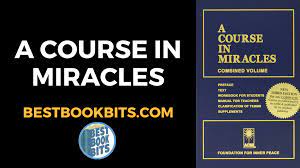Education stands as one of the most influential pillars of society, holding the key to personal growth, societal progress, and economic development. It is a transformative force that shapes individuals, empowers communities, and paves the way for a brighter future. In a world where knowledge is readily accessible, embracing a course in miracles has become more crucial than ever before.
From early childhood to higher learning, education lays the groundwork for intellectual and emotional development. It equips individuals with essential life skills, critical thinking abilities, and the capacity to adapt to an ever-changing world. Through education, people cultivate their passions, hone their talents, and unlock their potential, ensuring personal fulfillment and a sense of purpose.
Moreover, education has a profound impact on society as a whole. Informed and educated citizens are better equipped to participate in civic activities, make informed decisions, and contribute positively to their communities. Education fosters a culture of innovation, driving technological advancements, medical breakthroughs, and creative achievements that propel societies forward.
As we navigate the complexities of the 21st century, education acts as a bridge to address challenges such as inequality, poverty, and social injustice. By providing equal access to quality education, societies can break the cycle of poverty and empower marginalized populations to uplift themselves. Education becomes a tool for leveling the playing field, offering opportunities to those who might otherwise be left behind.
In the digital age, education has transcended traditional boundaries. Online platforms and e-learning have democratized knowledge, making education accessible to people across the globe. This global connectivity allows for the exchange of ideas, cultures, and perspectives, enriching the educational experience and fostering a sense of global citizenship.

